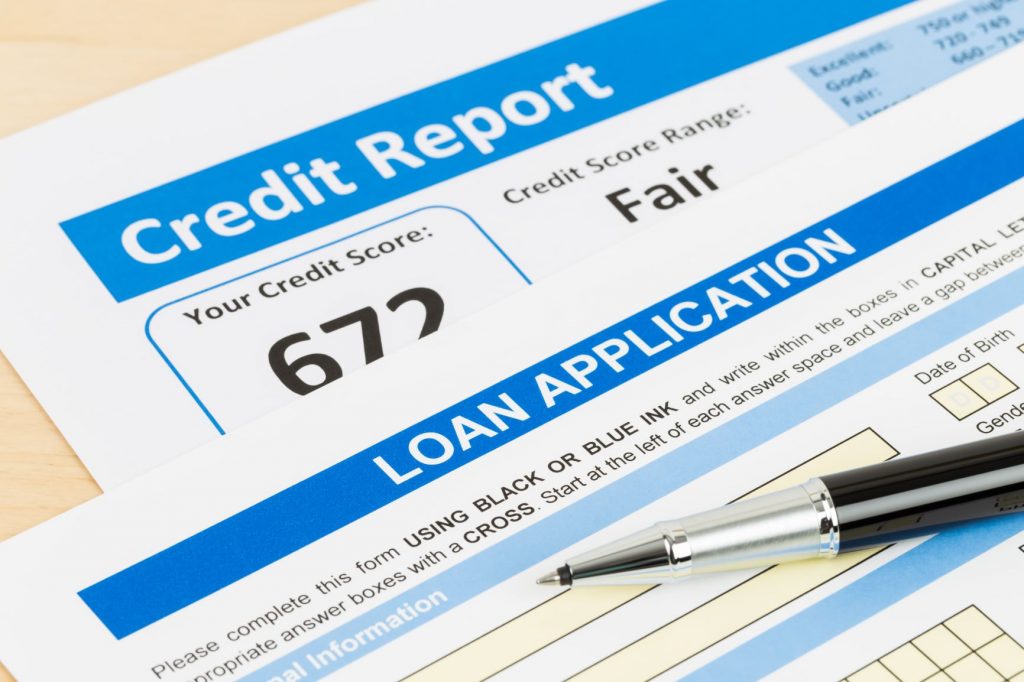Many people assume bankruptcy means they will lose everything and it should only be used as a last resort. The reality is bankruptcy is designed to give you a fresh start with a manageable path to keep your home and car. People also assume that bankruptcy destroys their credit for good. It is important to understand you can rebuild your credit score after filing for bankruptcy. For many candidates that already have poor credit scores, you might actually be able to improve your credit score faster by declaring bankruptcy and establishing payment terms with your creditors that you can stick to over time. Bankruptcy in Arizona can be the best option for people struggling with debt payments they cannot afford and there is a path to improve your credit score. Here are some simple tips to improve your credit score after bankruptcy in Arizona.
What is Bankruptcy?
If any person or business cannot pay their loans on time, they file a bankruptcy petition declaring they are unable to meet their financial obligations. This does not mean a person has to have no money left. Bankruptcy is declaring you cannot afford to make all your payments on time and you need to clear or renegotiate your payment terms with your creditors and lenders. There are different bankruptcy options, which are referred to as Chapters, that are available depending on your goals for the outcome of the bankruptcy and your ability to make reliable payments. We shared a previous article on some common misconceptions and questions around bankruptcy law in Arizona for those individuals that might be considering bankruptcy. It is always best to work with an experienced bankruptcy attorney to develop a plan for your specific situation.
Rebuilding Your Credit Score After Bankruptcy
The good news, whether you are considering bankruptcy or you have already had your bankruptcy filing approved, is you can start working on the simple plan to improve your credit score right away.
Here are few key ways to improve your credit score:
1. Evaluate All Your Credit Reports:
If you want to improve your credit score, you need to understand your current score with all three reporting agencies and fix any errors. As a legal resident of the U.S., you get a free copy of your credit reports every 12 months under the Fair Credit Reporting Act. This is available at AnnualCreditReport.com. Simply sign up and request your free reports. This will include reports from all three of the credit reporting agencies. There are free sites that can help manage your score regularly, but that is the government approved website where all U.S. residents can get a completely free copy of all their credit reports annually.
Next, evaluate your reports thoroughly, and if you find any errors or inaccuracies, you have the right to request they be removed by the credit reporting agencies. Under 15 U.S.C 1681, the agency generally takes 30 days to examine the disputed information so it is important to report any errors as soon as possible. You do not need to wait until you have completed the process of declaring bankruptcy to submit these requests. Make sure you are prepared to provide any evidence or documentation for those errors or inaccuracies. This will generally include proof of payments made or confirmation of debt satisfaction. The credit reporting agencies are required to remove any errors on your reports once they are verified.
2. Apply for a Secured Credit Card:
Applying for a new secured credit card is a beneficial way to start rebuilding your credit. If you have poor credit or recently filed for bankruptcy, you will likely not be able to receive a typical credit card, but secured credit cards are available to almost anyone. The line of credit made available simply matches the amount of cash deposited with the creditor. Even if you start with a few hundred dollars and use that card for some regular monthly bills, it will provide a positive impact on your credit score as you establish a payment history. Many of these secured credit cards include rewards points and incentives to use the card so it is almost always a better deal than just using a debit card.
3. Use Credit Cards Wisely:
To increase your credit score, you need to show on time payment history and keep the percentage of your total debt used versus debt available consistent. It is generally not going to help your credit score to attempt to pay off your total balance or close any accounts not being used. In the short term, keep your credit accounts open, even if you do not plan to use them.
A simple way to make sure you are building a good payment history is to put any bills you can manage to pay on auto-pay so they are always on time. Even the exercise of outlining all your current monthly bills and figuring out which ones you can afford to put on auto-pay should help get a better understanding of your current financial outlook. With auto-pay, the management of your accounts becomes easier as well. Anything you can commit to putting on automatic payments is one last thing you have to worry about every month and it helps build your overall payments history at the same time.
4. Apply for a Credit Builder Loan:
Credit builder loans work similar to a secured credit card. These loans are typically tied to a bank account with the lender and you can grow the amount you are authorized to use by increasing the amount deposited in the account. It might seem a little counterintuitive to open a savings account so that you can get access to a loan for that exact amount, but it will generally show on your credit as a new line of credit with payments made every month. Establishing another line of credit with on time payment history is almost always a positive for your credit score.
5. Keep a Steady Paycheck:
Reliable and predictable income will factor into your credit score and any bankruptcy plan. If you are considering leaving your current job, you should make sure you have a new job lined up before leaving. While this is generally good advice, it is essential if you are considering bankruptcy and looking to improve your credit score. Keeping a steady paycheck will impact your ability to get approved for any loan and will obviously impact your ability to make on time payments. Lenders expect steady income from the debtors to give out loans. If you are constantly changing your job, then it will likely hinder your ability to get a loan. Nearly all creditors and lenders will check bank statements of the past 12 months before approving any substantial loan or line of credit.
6. Find a Cosigner for Debt Consolidation or Financing:
Finding someone that is willing to cosign for new financing or debt consolidation might not be an option for many people, but it can be a fast path to improving your credit score. First off, start with an understanding of what you are looking to accomplish. Would a debt consolidation loan allow you to pay off multiple debts and leave you with a manageable monthly payment? Do you have the reliable income to make the payments on time? Can you afford the payments for a car, but cannot get approved for the financing with reasonable terms? These are situations where finding a cosigner can make a big difference.
Cosigning for a large loan or financing is a big decision for someone to make. If you are going to ask someone to cosign, you need to understand that you are asking them to assume the risk of making those payments if you cannot. This could impact their financial situation and credit score if the payments are not made. Whether you are asking a friend or family member, you should be prepared to discuss these questions and provide some proof that payments will be made. There are many ways that finding a person with good credit willing to cosign on a loan can help your credit score, but you should also be aware of the stress this can put on a relationship if you are not certain those payments will always be made on time.
7. Become an Authorized User on Existing Credit Accounts:
Getting added as an authorized user to the credit card account of a trusted family member or friend is a slightly less risky way than cosigning to establish some payment history. You don’t actually need to use the card or even have the physical card. As an authorized user on the account, it is beneficial to your credit to show additional credit lines and payment history as the main card holder pays their monthly bills. If they agree, you will be added to a specific credit card account and the positive activity will be included on your credit report and factored into your credit score. You could even propose sending payments to the account holder for them to make on the card.
Work with an Experienced Bankruptcy Attorney in Arizona
There are many reasons to consider bankruptcy in Arizona. They range from unexpected emergencies and expenses to investment loss to poor financial management. Whatever the reason to consider bankruptcy, it is important to understand it can be used to get a fresh start. It does not have to permanently ruin your credit and result in the loss of everything you own. These tips can help anyone improve your credit score and they will certainly help if you recently filed for bankruptcy. The attorneys at RSN Law can help those struggling with unmanageable debt payments figure out if bankruptcy in Arizona is the best path forward. Contact us today at 480-712-0035 to schedule an initial consultation or make an appointment on our contact us page.
RSN Law intends this article to be for informational purposes, not to be relief on a specific legal matter, and does not create an attorney-client relationship.

